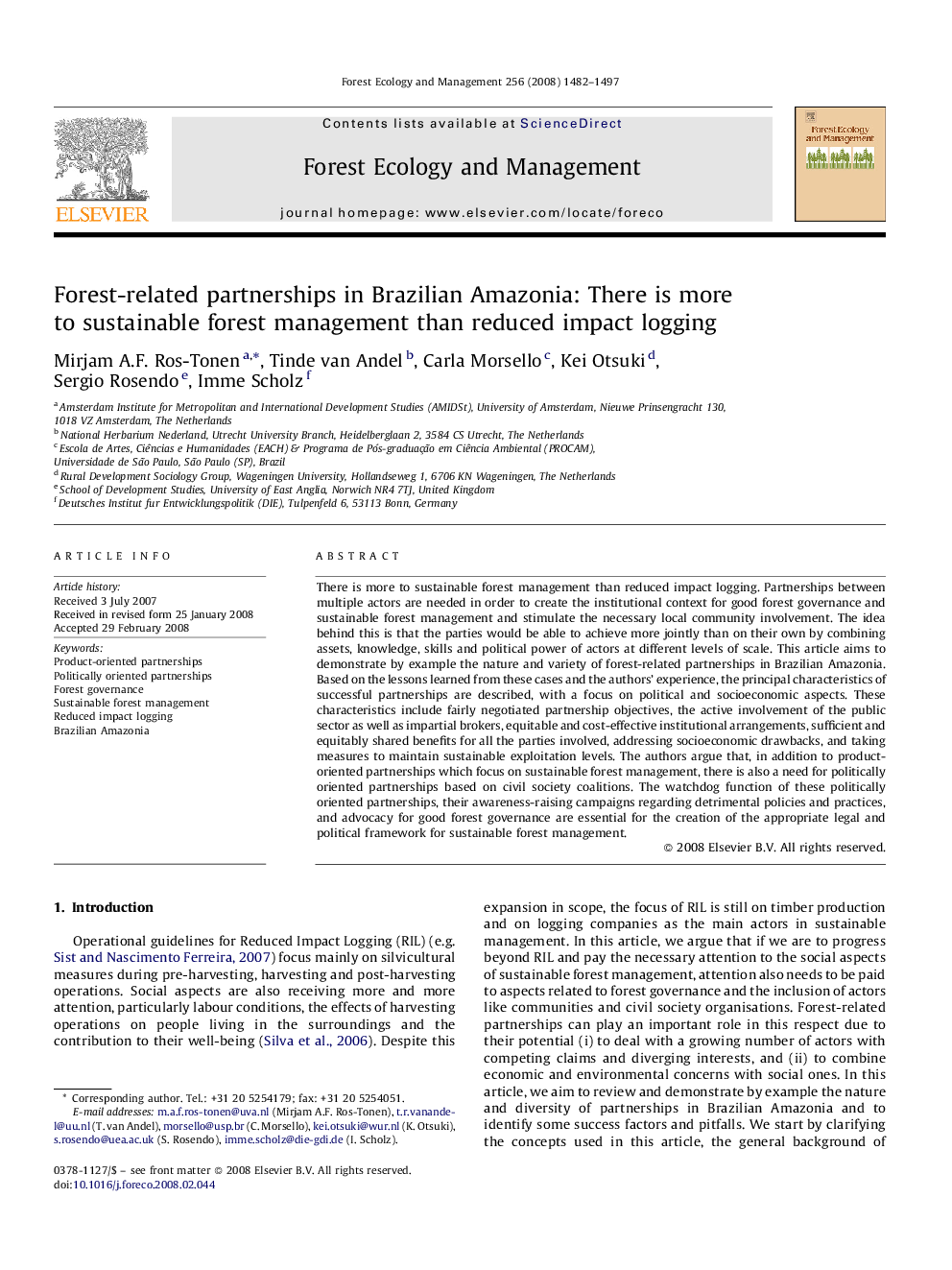| Article ID | Journal | Published Year | Pages | File Type |
|---|---|---|---|---|
| 89706 | Forest Ecology and Management | 2008 | 16 Pages |
There is more to sustainable forest management than reduced impact logging. Partnerships between multiple actors are needed in order to create the institutional context for good forest governance and sustainable forest management and stimulate the necessary local community involvement. The idea behind this is that the parties would be able to achieve more jointly than on their own by combining assets, knowledge, skills and political power of actors at different levels of scale. This article aims to demonstrate by example the nature and variety of forest-related partnerships in Brazilian Amazonia. Based on the lessons learned from these cases and the authors’ experience, the principal characteristics of successful partnerships are described, with a focus on political and socioeconomic aspects. These characteristics include fairly negotiated partnership objectives, the active involvement of the public sector as well as impartial brokers, equitable and cost-effective institutional arrangements, sufficient and equitably shared benefits for all the parties involved, addressing socioeconomic drawbacks, and taking measures to maintain sustainable exploitation levels. The authors argue that, in addition to product-oriented partnerships which focus on sustainable forest management, there is also a need for politically oriented partnerships based on civil society coalitions. The watchdog function of these politically oriented partnerships, their awareness-raising campaigns regarding detrimental policies and practices, and advocacy for good forest governance are essential for the creation of the appropriate legal and political framework for sustainable forest management.
